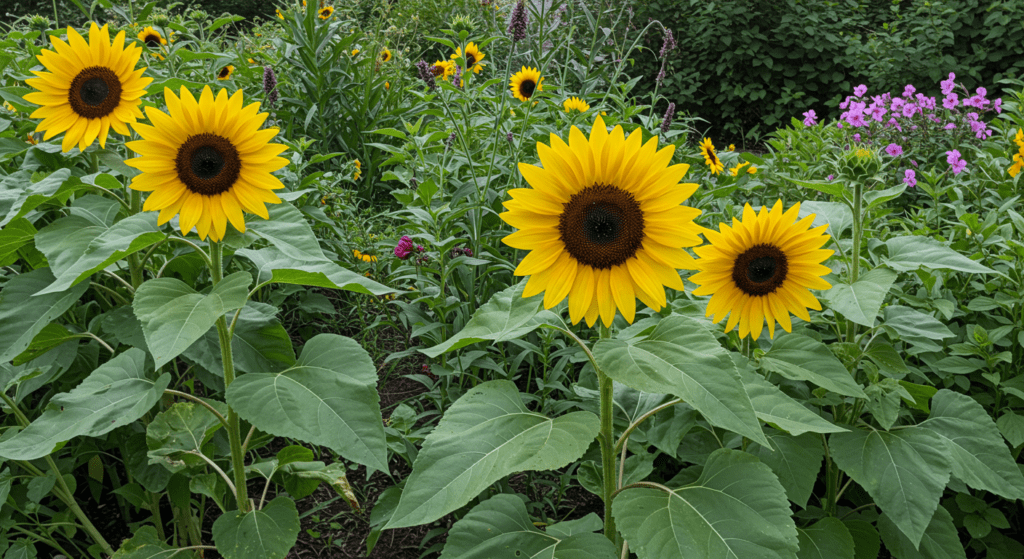Table of Contents
- Introduction
- Understanding Late Summer Planting
- Best Vegetables to Plant in August
- Herbs That Thrive in Late Summer
- Flowers for August Planting
- Container Gardening in August
- Essential Growing Tips
- Conclusion
- Frequently Asked Questions
Introduction
Don’t let the dog days of summer fool you – August is a prime time to start a new wave of gardening. While many gardeners focus on harvesting their summer bounty, this month offers unique opportunities to plant short-season crops and prepare for a productive fall garden. Whether you’re interested in extending your vegetable harvest, establishing aromatic herbs, or adding late-season color to your landscape, August planting can yield rewarding results.

Understanding Late Summer Planting
Success in August gardening starts with understanding your local climate. The key factors to consider include:
- Your USDA hardiness zone
- Average first frost date in your region
- Days to maturity for chosen plants
- Temperature tolerance of different varieties
Gardeners in zones 9-11 enjoy more flexibility due to milder winters, while those in colder regions need to focus on frost-hardy or quick-maturing varieties.
Best Vegetables to Plant in August
Cold-Hardy Vegetables
These vegetables can withstand frost and temperatures below 28°F:
- Broccoli (from transplants)
- Brussels sprouts
- Cabbage
- Kale
- Spinach
- Turnips
Light Frost Tolerant Vegetables
These can handle temperatures between 28-32°F:
- Beets
- Swiss chard
- Lettuce
- Peas
- Cauliflower
- Radishes
Herbs That Thrive in Late Summer
Quick-Growing Herbs
- Arugula
- Cilantro
- Dill
- Parsley
Perennial Herbs
- Chives
- Lemon balm
- Oregano
- Thyme
- Rosemary
Flowers for August Planting
Frost-Tolerant Flowers
- Sweet alyssum
- Dianthus
- Calendula
- Snapdragons
Perennial Flowers
- Asters
- Chrysanthemums
- Peonies
- Sedum
- Bearded iris
Container Gardening in August
Container gardening offers flexibility when garden space is limited. Consider these tips:
- Choose appropriately sized containers
- Group plants with similar water and sunlight needs
- Focus on quick-growing crops like radishes and lettuce
- Ensure proper drainage
- Use high-quality potting soil
Essential Growing Tips
- Water Management
- Water deeply and consistently
- Mulch to retain moisture
- Water early in the morning
- Temperature Control
- Use frost cloth for protection
- Consider cold frames
- Monitor local weather forecasts
- Soil Preparation
- Add compost
- Test soil pH
- Remove spent plants
Conclusion
August planting opens up numerous possibilities for extending your growing season and enjoying fresh harvests well into fall. By choosing appropriate plants for your climate and following proper growing techniques, you can maintain a productive garden even as summer wanes.
Frequently Asked Questions
Q: Can I plant tomatoes in August? A: Yes, but only in regions with long growing seasons or from transplants. Ensure temperatures stay below 90°F for fruit setting.
Q: What’s the easiest vegetable to grow in August? A: Radishes are among the easiest and quickest vegetables to grow, maturing in just 20-30 days.
Q: How do I protect my August plantings from heat? A: Use mulch, provide afternoon shade, and maintain consistent watering. Consider using shade cloth during extreme heat.
Q: Can I overwinter plants started in August? A: Many cold-hardy vegetables and perennial flowers planted in August can overwinter successfully with proper protection.
Q: Should I use seeds or transplants in August? A: For most crops, transplants are recommended to ensure harvest before frost. Seeds work well for quick-growing crops like lettuce and radishes.